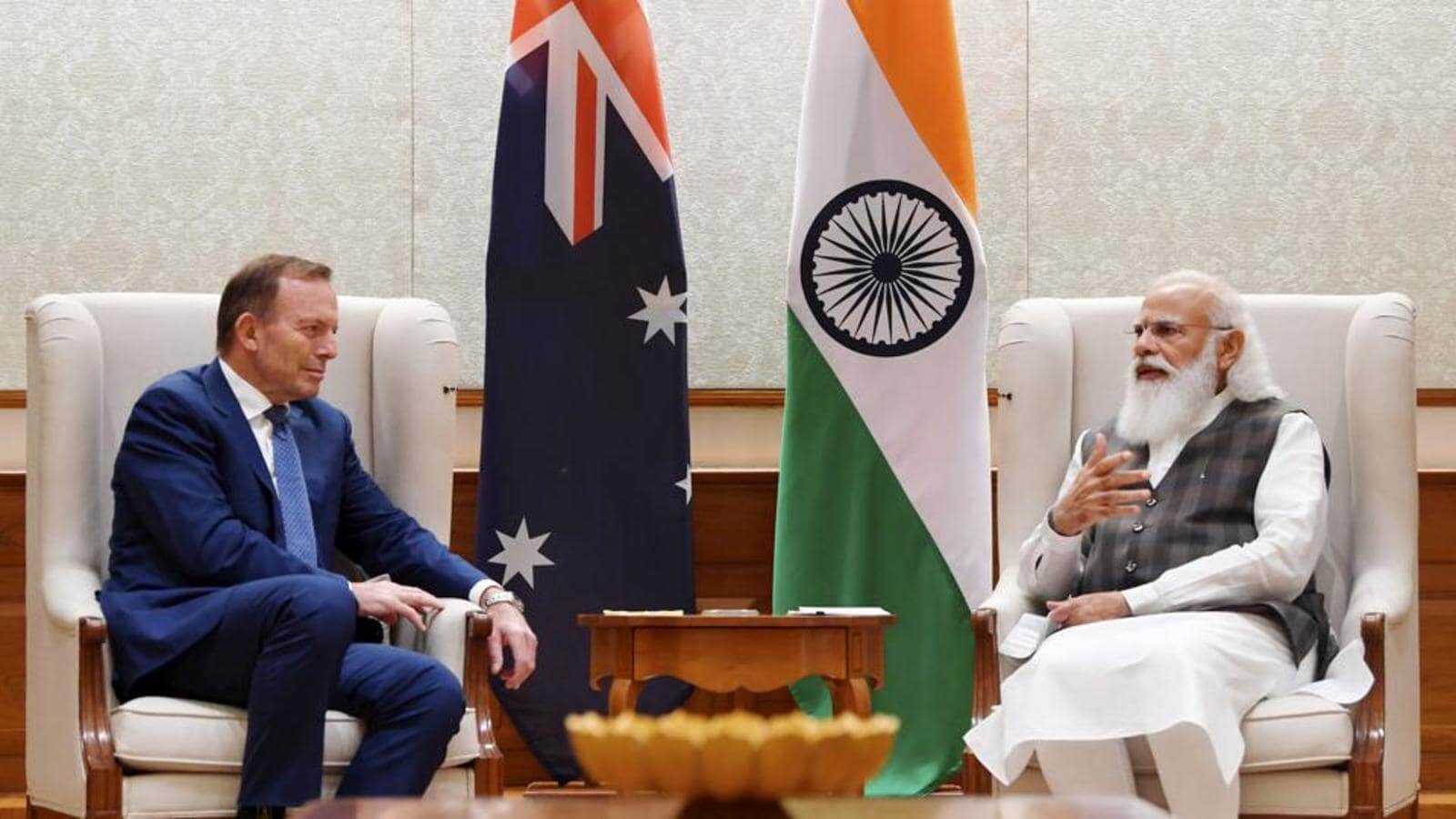Australian Special Trade Envoy to India and former Prime Minister (PM) Tony Abbott has lauded Indian PM Narendra Modi’s role in strengthening the Quad. He also said that India is an “emerging democratic superpower” that could solve the growing economic and security threats posed by China.
In an opinion piece for The Australian, Abbott said India and Australia are “like-minded democracies” whose bilateral relations had been “under-developed” until the election of Narendra Modi. He said the Indian premier played a monumental role in reviving the Quadrilateral Security Dialogue, which is comprised of India, Australia, Japan, and the United States (US). Furthermore, he expressed gratitude to the Indian side for inviting Australia to participate in the annual Malabar naval exercises, which will also see the participation of the United Kingdom besides the Quad allies. Abbott said, “It will be an impressive show of strength, demonstrating the democracies’ commitment to a free and open Indo-Pacific.”
In the article, Abbott also noted that the key threat to maritime security was a result of “China’s daunting power,” which was a consequence of the “free world’s decision to invite a communist dictatorship into global trading networks.” He said that the decision had been previously made with the assumption that “rising prosperity” and “economic freedom” would lead to “political liberalisation.” Abbott said this was the belief he held when he entered into a trade deal with China in 2014 when he was PM, resulting in a surge in bilateral trade. However, he said, “The current capricious boycotts of Australian coal, barley, wine, and seafood show that, for the Beijing regime, trade is used as a strategic weapon.”
Abbott accused the Chinese regime of exploiting the “West’s goodwill” through such moves by stealing their technology, undercutting their industries, and, consequently, emerging as a “more powerful competitor than the old Soviet Union ever was.” He also raised concerns about China “rapidly developing a military” to fight for Taiwan.
Regarding all these fears surrounding China’s military and trade-related aggression, he said, “The answer to almost every question about China is India.” While recognising that India is not as strong an economy as China, Abbott said that India continues to be the second-largest producer of steel and pharmaceuticals and could act as a substitute for China in global supply chains. Furthermore, Abbott said, “Australia could readily replace China as a key source of the rare earth and other strategic minerals that India will need, under PM Modi’s “Make in India” programme, if it’s to replace China as a source of manufactured inputs at scale.”
Consequently, the former PM celebrated the close trade relations with India, Australia’s seventh-largest trade partner. He also wrote about the success of the two sides’ negotiating teams in working towards an “early harvest” trade agreement, which is set to be brought in by the end of 2021.
Concluding his article, Abbott said that the world democracies should support Australia’s call to enhance India’s leadership role. He said that this was critical as there is a potential to have a “family relationship” with India, which would never be possible under the communist regime of the Chinese state.
The opinion piece was published a few days after Abbott concluded his visit to India, where he met PM Modi to discuss trade relations. During the meeting, the duo “discussed ways to strengthen bilateral trade, investment, and economic cooperation to realise the full potential of the India-Australia Comprehensive Strategic Partnership.” They also stressed that their trade partnership would help in “realising their shared vision of a stable, secure and prosperous Indo-Pacific region.”
Former Australian PM Abbott Lauds Modi’s Role in Reviving Quad
In an opinion piece for The Australian, Special Trade Envoy for India and former PM Tony Abbott celebrated PM Narendra Modi’s role in strengthening the Quad.
August 10, 2021

SOURCE: PTI
